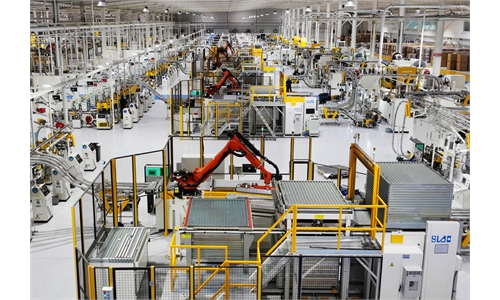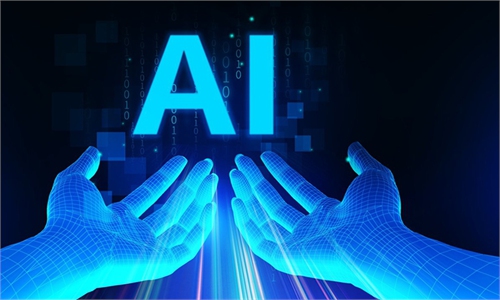
AI Photo: VCG
China aims to develop 60 percent of AI-related standards serving innovations of key technologies and applications by 2026, part of the targets mentioned in a draft aimed at encouraging the regulated development of AI.
The draft, issued by China's Ministry of Industry and Information Technology (MIIT) on Wednesday, also aims to put in place more than 50 national and industrial AI standards and 20 international standards to facilitate high-quality development of the AI industry.
The draft also proposes for more than 1,000 companies to adopt and advocate for new standards. There will have more than 1,000 companies expected to contribute and embrace these new standards, while the draft also encourages Chinese AI enterprises to participate in international cooperation in this field.
The draft is made in the background as China's AI industry is developing quickly in terms of technology innovation and applications.
With the accelerated technologies represented by large models, the AI industry has shown new paths forward in tech breakthroughs and deep collaboration between countries, creating an acute need to put in place meaningful industry standards, the MIIT said.
China would work with other countries to resolve global issues concerning AI ethics, security and privacy, and promote the construction of a fairer, more reasonable and effective global AI governance system, Wang Peng, an associate researcher at the Beijing Academy of Social Sciences, told the Global Times on Thursday.
China will place more emphasis on the high quality growth and sustainable development of the AI in the future, Wang added, noting the proposed standards could play a pivotal role in shaping the future of AI development and collaboration on an international scale.
In October 2023, China put forward the Global AI Governance Initiative, which covers AI development, safety and governance. It offered a constructive way of thinking on AI issues that will provide a reference for relevant global discussions and rule-making.
The vast potential of AI across the economy has also attracted interest from major international players.
Recently, Hewlett Packard Enterprise and Juniper Networks, a leader in AI-native networks, announced that they have entered an agreement under which HPE will acquire Juniper in an all-cash transaction for $40.00 per share, representing an equity value of approximately $14 billion.
The combination of HPE and Juniper advances HPE's portfolio mix shift toward higher-growth solutions and strengthens its high-margin networking business. Following the merger, the overall network business line will be stronger and better able to provide network equipment services to Chinese users, the company said.



